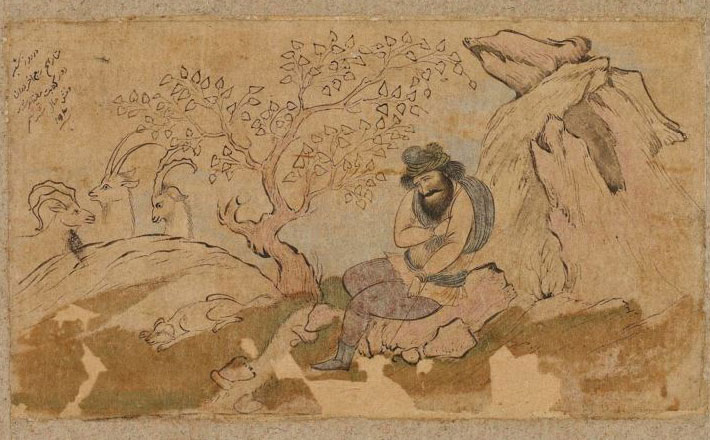Commentary on Acts 9:36-43
This passage begins with the words, “in Joppa there was a certain female disciple (mathetria) by the name of Tabitha, which being translated (into Greek) also means Dorcas.
Her life was full good (agathos) works (erga) and necessities for the poor (eleemosunon), which she herself provided” (Acts 9:36, my translation). Cornelius, the Roman centurion, also generously donated items to the people, which God noticed together with his prayers (Acts 10:2, 4). Both Tabitha and Cornelius understood, it seems, the flip side of privilege to be responsibility to those less privileged, including the colonized and marginalized. Tabitha bears the privilege and the burden of being the only named mathetria in the New Testament. The burden of being the first is the expectation of being a role model for all those that follow, to set the pace for future leaders. The first should impact the community from she emerged in positive, transformative ways, opening doors for others. To be among the few or even the first on some level is marked by ambivalence. Such an honor and responsibility does not mean that there were not others, contemporary and before her, that should have been, could have been called mathetria. Sometimes timing is everything. Tabitha’s story comes to us because of her death. Too often we only value the good works and gifts of others after they have spent their lives and/or die.
Full of good works, but not of the Spirit?
There are no women in the Acts of the Apostles that are described as being full of the Holy Spirit. This may be because a natural consequence of being full of the Holy Spirit is the spoken prophetic word. The twelve apostles have usurped the authority over the spoken word for themselves, choosing six men (aner) full of the Spirit to wait on tables (Acts 6:1-6). The refusal of the author to explicitly attribute the filling of the Holy Spirit to women in Acts does not mean that God’s Spirit did not fill them. In Acts, the Joel prophecy (2:28-32 LXX) is recontextualized or applied to “the last days” in which God is expected to pour out God’s Spirit on women and men, slave and free (2:17-22). Yet even Philip’s prophesying daughters are not said to be full of the Holy Spirit. But they are overshadowed and rendered ineffective by a male prophet named Agabus who traveled all the way from Jerusalem (21:10; cf. 11:28). Maybe it is all about the centralization of male power. So our text focuses on Tabitha’s “good works”.
How is one “full of good works”? Does it mean that Tabitha’s entire life was dedicated to others, even at the expense of her own health? Often churches rely on the persistent work of a few women (or men) to fulfill the church’s ministries. And those women are usually more mature women who have been convinced to be the woman who never complains. She expends all her time and resources for the benefit of others at the expense of her own well-being. Is this descriptive or prescriptive? It is one thing to draw strength from outside of one’s self, from God and from people and things, to meet life’s challenges. But to be expected to be a stereotypical “StrongWoman” or as Dr. Chanequa Walker-Barnes argues a “StrongBlackWoman” is quite another thing. The “StrongBlackWoman” rarely or ever says “no” or complains; everyone depends on her to step in when things go wrong. She seldom asks for help, and feels “compelled and empowered to serve others” endlessly. A “StrongBlackWoman” is not expected to break down, but remains an ostensible example of stalwart faith in the most painful circumstances. Thus, others seldom hear her cries because people expect her to handle everything life casts upon her.1 God’s Spirit will lead us to have balanced lives full of self-care as we care for others.
The author of Acts may not want readers to conflate the “in those days” at Acts 9:37 with “the last days” at Acts 2:17 when God will pour out God’s Spirit on all flesh. But maybe critical readers should conflate the two. Because the six Hellenist men (deacons) chosen to wait on the tables in Act 6 are full of the Spirit, we are not surprised when Stephen preaches the longest sermon in Acts.
Yet, it is in “those days” that Tabitha becomes fatally sick. Just like all other human beings, mathetrias who are full of good and just acts become ill and die. It is a human rite of passage. The disciples (mathetai) in Joppa prepare her body and place it in an upper room (hyperoon). Not everybody had an upper room; a second floor room. The eleven disciples met in the upper room in Jerusalem waiting for a special gifting of God’s Spirit (Acts 1:13); I wonder if Tabitha made that trip and could have been among those women upon whom God’s Spirit rested that day? Wealthy homes, like some that can be seen among the ruins in Pompeii (the ancient Roman city destroyed and fossilized by the eruption of Mt. Vesuvius in 79 CE/AD). Tabitha quite possibly was not a poor widow, but a single woman of some wealth among disciples of similar social status.
The disciples in Joppa, female and male, upon hearing that Peter is nearby, send two men to summon him (Acts 9:38). When Peter arrives in the upper room, mourners and beneficiaries of Tabitha’s just acts and gifts meet him at the door (9:39). Unfortunately, it is true that there are few people, few disciples or any gender, who would risk their economic status in order to provide for the less privileged. By taking such a risk, our good works and just acts challenge and transcend unjust systems. Many of us first consider how our giving will or will not diminish or increase our living. We are willing to talk about “dying for Christ” but not risking our living for others. The world will never be a better place as long as the Tabitha’s (with adjustments for self-care) are few. And even if their bodies experience a resurrection in this life, like Tabitha’s, even that resurrected body was a mortal one. It is the spirit of Tabitha, the Spirit in her, that we hope will take on an immortality among the living. Tabitha used her privilege — her wealth, just acts and gifts, and prophetic speech — for the benefit of the less privileged: the widows, indigent, the hungry, depressed, oppressed, marginalized, and penalized.
Notes:
1 Chanequa Walker-Barnes, Too Heavy a Yoke. Black Women and the Burden of Strength (Eugene, OR: Cascade, 2014), 16-17.


April 17, 2016